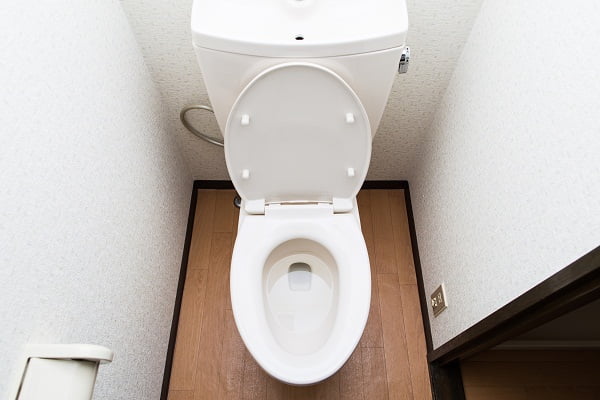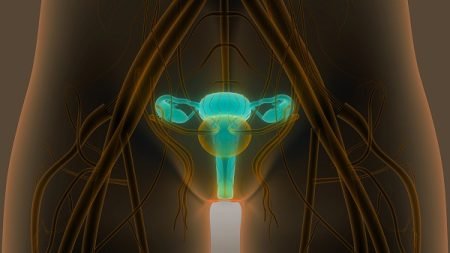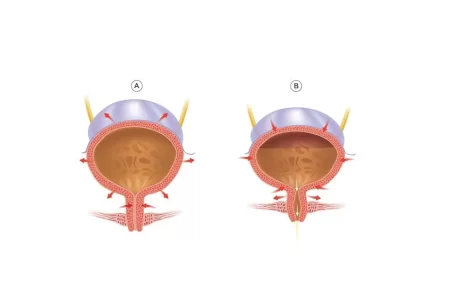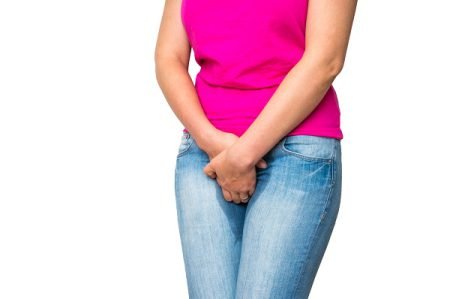What Are the Signs and Symptoms of Urinary Incontinence?
- Updated on: Jun 11, 2024
- 4 min Read
By
- Published on Oct 3, 2019


Urinary Incontinence happens when a person loses control over his bladder, thus, resulting in the unintentional passing of urine. In some cases, the bladder empties completely (due to uncontrolled flow), while in the other cases, a person may experience only minor leakages.
Signs of urinary incontinence
There are several signs of urinary incontinence. Broadly, the signs are divided into two categories: emotional signs and sensory signs.
Emotional Signs
Emotional signs do not refer to any physical signs but they refer to the change in the behavior and actions of a patient. Emotional signs are more or less the same for all types of incontinence. Some of the emotional signs of urinary incontinence are given below:
- depression
- anger
- low self-esteem
- low confidence
- socially less active
- desire for Attention
Sensory Signs
Sensory signs are related to the sense organs. These signs can be seen, heard, smelled or felt by a person. The sensory signs of urinary incontinence are listed below:
- wet undergarments or clothes or bed linen
- smell of urine
- itching, irritation, and inflammation of the perineum
- accidents while engaged in physical activity, sneezing, laughing
Other Symptoms of urinary incontinence
The symptoms of urinary incontinence are different for different types of continence. They may also vary from person to person. The symptoms of different types of urinary incontinence are described below:
Symptoms of Stress Incontinence
Stress incontinence is a condition of involuntary (unintentional) urine leakage forced by an external trigger or exertion like coughing, sneezing, and laughing. An individual suffering from stress incontinence may experience the following symptoms:
- urine escapes when an external force or trigger is experienced
- abdomen pressure may be felt before the leakage of urine
- if the condition is mild to moderate, urine leaked is much less
- in severe cases, the amount of urine leaked is more
- the leakage is unpredictable
- patient does not experience any urgency to urinate
- no nocturia (need to wake up at night to urinate)
Symptoms of Urge Incontinence
Urge incontinence refers to unintentional urine leakage preceded by an urgency to urinate. Patients may experience the following symptoms:
- uncontrolled urine loss
- a strong urge or need to go the bathroom now and then (frequent urination)
- immediate urge without any warning
- the patient cannot delay the urge else, the entire contents of the bladder are lost
- the patient is unable to hold back the urine
- cannot be prevented
- overactive bladder- the patient always feels that his bladder is full and he needs to go to the bathroom
- patient experiences nocturia (need to go to the bathroom at night)
Symptoms of Mixed Incontinence
Mixed incontinence refers to the condition of involuntary release of urine which is associated with external exertion and urgency. It is the combination of stress and urge incontinence. The symptoms include those of stress incontinence and urge incontinence together. Some of the symptoms are given below:
- bladder is overactive (the urge to urinate is strong and frequent)
- the urethra may not act when required (the urine cannot be held back even in the absence of the urge to urinate)
- people experiencing mixed incontinence experience mild to moderate urine loss with physical activities (stress incontinence).
- they experience sudden urine loss without any warning (urge incontinence). Urinary frequency is high
- urgency is always experienced
- the patient also experiences nocturia
- most of the time, the symptoms of both (urge and stress incontinence) are experienced in a blended manner
Symptoms of Overflow Incontinence
Overflow incontinence refers to continuous dribbling (urine remaining in the urethra after voiding the bladder slowly leaks out after urination) of urine from an overfull bladder without any urge to urinate. It happens when an individual cannot empty his bladder at a time. The urine may dribble. The symptoms experienced by the person affected by overflow incontinence are given below:
- there may be no strong urge to urinate
- bladder never empties, and small amounts of urine leak continuously
- bladder empties slowly even though the muscles may not contract because the bladder is always full
- people may feel like the bladder does not empty completely
- leaking urine while asleep
- urine dribbles out even after urination.
Symptoms of Functional Incontinence
Functional incontinence is a condition in which the person does not reach the bathroom on time to urinate. The reason may be poor mobility or the surroundings may not be familiar to the person. The symptoms of functional incontinence are given below:
- the person may have a normal functioning bladder
- the person may have normal bladder control
- leakage of urine before the person could enter the bathroom
- leakage may be continuous or in intervals
- the person may be physically or mentally unfit
- the person may be unwilling to go to the bathroom
Urinary incontinence is very common but it can be treated with proper medication and proper guidance. Read about the treatment of urinary incontinence.
FAQs
Can stress cause urinary incontinence?
Yes, stress can trigger urinary incontinence. It's often associated with activities like coughing or laughing, leading to unintentional urine leakage.
Are men immune to urinary incontinence?
No, both men and women can experience urinary incontinence. It's more common in women due to factors like pregnancy, childbirth, and menopause, but men can also be affected.
Can urinary incontinence be a sign of a more serious health issue?
Yes, it can indicate underlying health problems such as urinary tract infections or neurological disorders. Seeking medical advice is crucial for proper diagnosis and treatment.
Is urinary incontinence a normal part of aging?
While it's more common in older adults, urinary incontinence is not a normal consequence of aging. It often results from treatable conditions, and medical intervention can improve or resolve symptoms.
Can lifestyle changes help manage urinary incontinence?
Yes, adopting a healthy lifestyle, including pelvic floor exercises and maintaining a healthy weight, can significantly improve urinary incontinence symptoms and overall bladder health.













1 Comment
It’s great that you talked about how there are several signs of urinary incontinence. I was skimming through a health magazine earlier and I saw one article that mainly talked about urinary incontinence. From what I’ve read, it seems there are urinary incontinence treatments available now, which is nice to know.